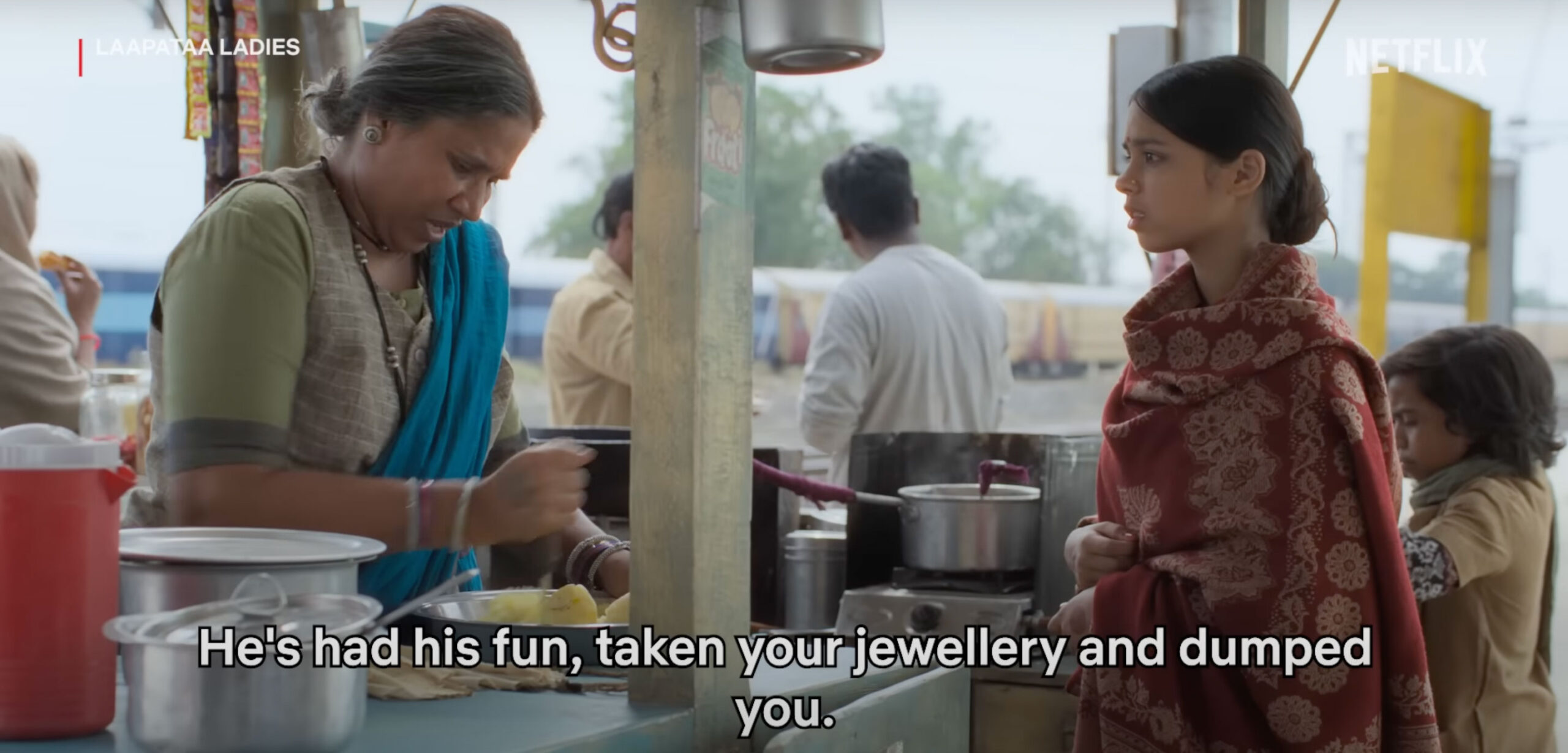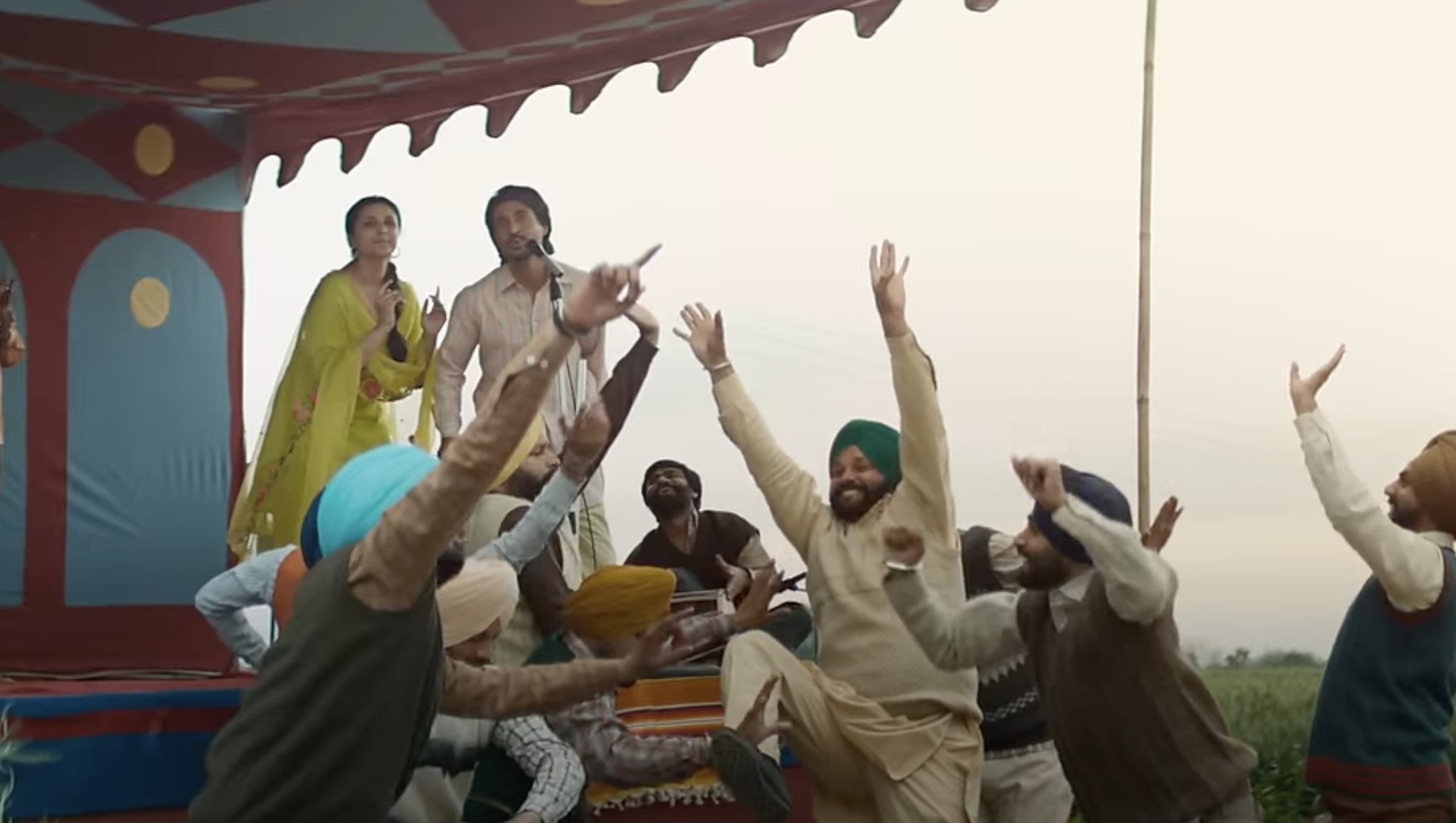After a long wait, I had the opportunity to watch “Origin” in London. Ava DuVernay’s highly acclaimed film is an ambitious undertaking, weaving together the experiences of Dalits in India, Jews in Nazi Germany, and Black Americans in the Jim Crow South to explore the insidious nature of caste systems across cultures and continents.
Based on Isabel Wilkerson’s book “Caste: The Origins of Our Discontents”, the film utilizes personalities talked about in the book as characters. Ambedkar, for example, is portrayed visually, along with a voice-over narrating his journey and work. The narration carries the perspective of Isabel (played by Anjanue Ellis-Taylor), weaving a story about the characters’ shared experiences in three different social settings.
The film makes you so emotional that you go on a journey for a few hours. It forces you to think, question and then helps you find answers to fight against all kinds of injustices, especially caste – which is the foundation. “A world without caste would set everyone free” – so we hear being said in the film. It beautifully presents before us Sant Raidas’s idea of “Begumpura” as a solution. It brings much-needed attention to the often-overlooked issue of caste discrimination on the global forums, particularly the plight of Dalits in India. By drawing parallels with other historically oppressed groups, the film encourages viewers to recognize the universality of suffering inflicted by unjust social hierarchies.

While the film occasionally evokes a documentary style through its depiction of sensitive issues like manual scavenging, it ultimately remains firmly anchored in fictional storytelling, while remaining true to the historical facts and events. Ambedkar’s interactions with the people, for instance, are conveyed visually but without dialogue, further emphasizing the symbolic nature of his representation.
The film features outstanding performances from its ensemble cast, especially by those who skilfully portray characters from marginalized communities, including Gaurav J. Pathania’s compelling portrayal of Dr Ambedkar. Ava DuVernay, who herself comes from a marginalized community (black and female), knows the power of seeing oneself depicted accurately on screen. She understands the crucial role of representation not just among characters but also among the actors who portray them. This commitment extends beyond mere tokenism; she insists that Dalit characters are played by “actors” from the Dalit community itself. This dedication to “authenticity” and “inclusivity” sets her apart, demonstrating her sensitivity, integrity and unwavering commitment to her craft. Unlike many Indian filmmakers who resort to the convenient excuse of “unavailable suitable actors” to justify casting “upper caste” actors in Dalit roles, Ava takes a different path, one paved with genuine effort and respect for marginalized communities. It shows the raw emotion, vulnerability and empathy of the characters, effectively conveying the lived experiences of discrimination and oppression.
“Origin” will definitely contribute to solidifying global solidarity among the oppressed communities of the world. It has the potential to inspire filmmakers to depict the truth while remaining true to societal aesthetics and sensibilities. It also encourages Dalits in India to rise, roar, and fight, as the protagonist Isabel says, “you don’t escape trauma by ignoring it, but you escape trauma by confronting it”. Through Isabel’s personal journey to find larger answers, we confront the harsh realities of segregated societies. Ava DuVernay masterfully wields close-up shots as recurring mirrors, reflecting Isabel’s emotional turmoil and inviting us to share her breakdowns and triumphs. Similarly, the shaky frames captured by handheld cameras mirror the instability of her life and the societal structures that crumble around her.
The film explores Babasaheb’s solidarity with the Black community, providing an Indian context for their resistance strategies against oppression. The idea of applying the term “caste” to compare social systems across continents is a powerful and unsettling one. It highlights the disturbing commonality where certain groups are deemed inherently inferior and denied basic freedoms like love, movement, and expression based solely on their background.
“Origin” scrutinizes the dark underbelly of India’s caste system, demystifying the abhorrent practices associated with certain occupations and the entrenched hierarchy that relegates them to specific castes. It unflinchingly exposes these realities not just to domestic audiences, but to the international community as well. In a ground-breaking move, the film brings the dehumanizing practice of manual scavenging to a Hollywood screen, offering a stark glimpse into the societal and governmental attitudes towards Dalits in India. It confronts the uncomfortable truth: even in the face of progress and modernity, deep-seated prejudices can persist, leaving Dalits marginalized and ostracized.
The film challenges complacency when it comes to caste and discrimination. It argues that simply not personally practising discrimination isn’t enough. Even if “your hands are clean”, you are still part of a system with deep-rooted inequalities. Staying neutral allows these inequalities to persist, essentially leaving the next generation to inherit a broken society. Instead of justifying inaction by pointing to the past, the film urges an introspective approach. Ask yourself: “What am I actively doing to dismantle this system? What can I contribute to make society more just and equitable for the next generation?” This shift in focus puts the responsibility squarely on the present generation to break the cycle. It is not about what your ancestors did, but what you choose to do now. Each positive action, however small, contributes to building a better future for everyone.
Forward Press also publishes books on Bahujan issues. Forward Press Books sheds light on the widespread problems as well as the finer aspects of Bahujan (Dalit, OBC, Adivasi, Nomadic, Pasmanda) society, culture, literature and politics. Contact us for a list of FP Books’ titles and to order. Mobile: +917827427311, Email: info@forwardmagazine.in)





